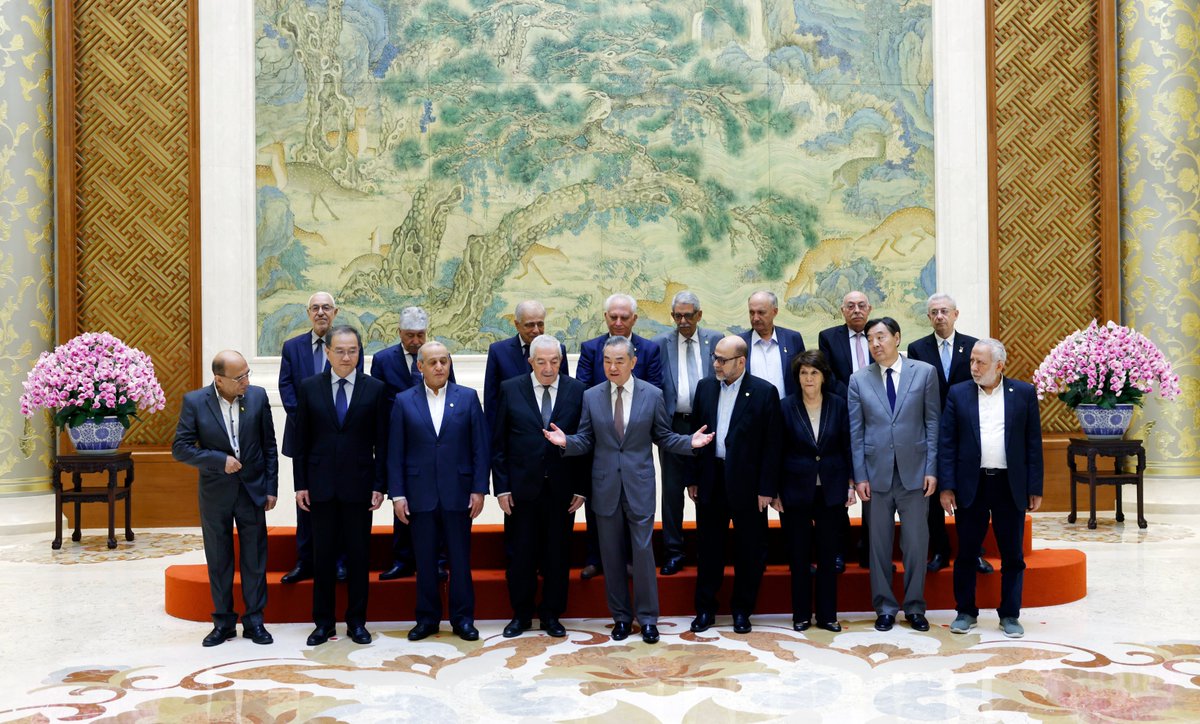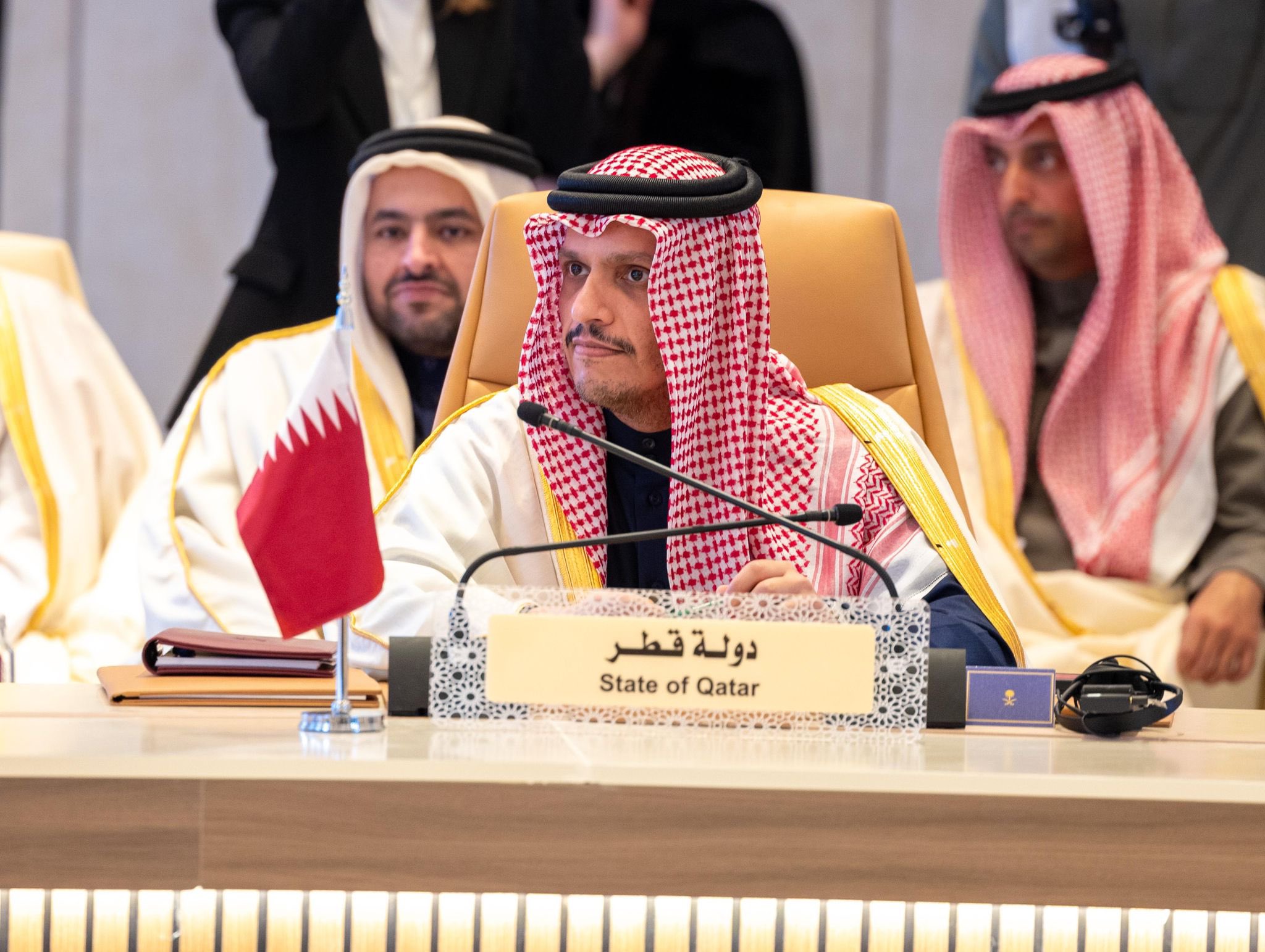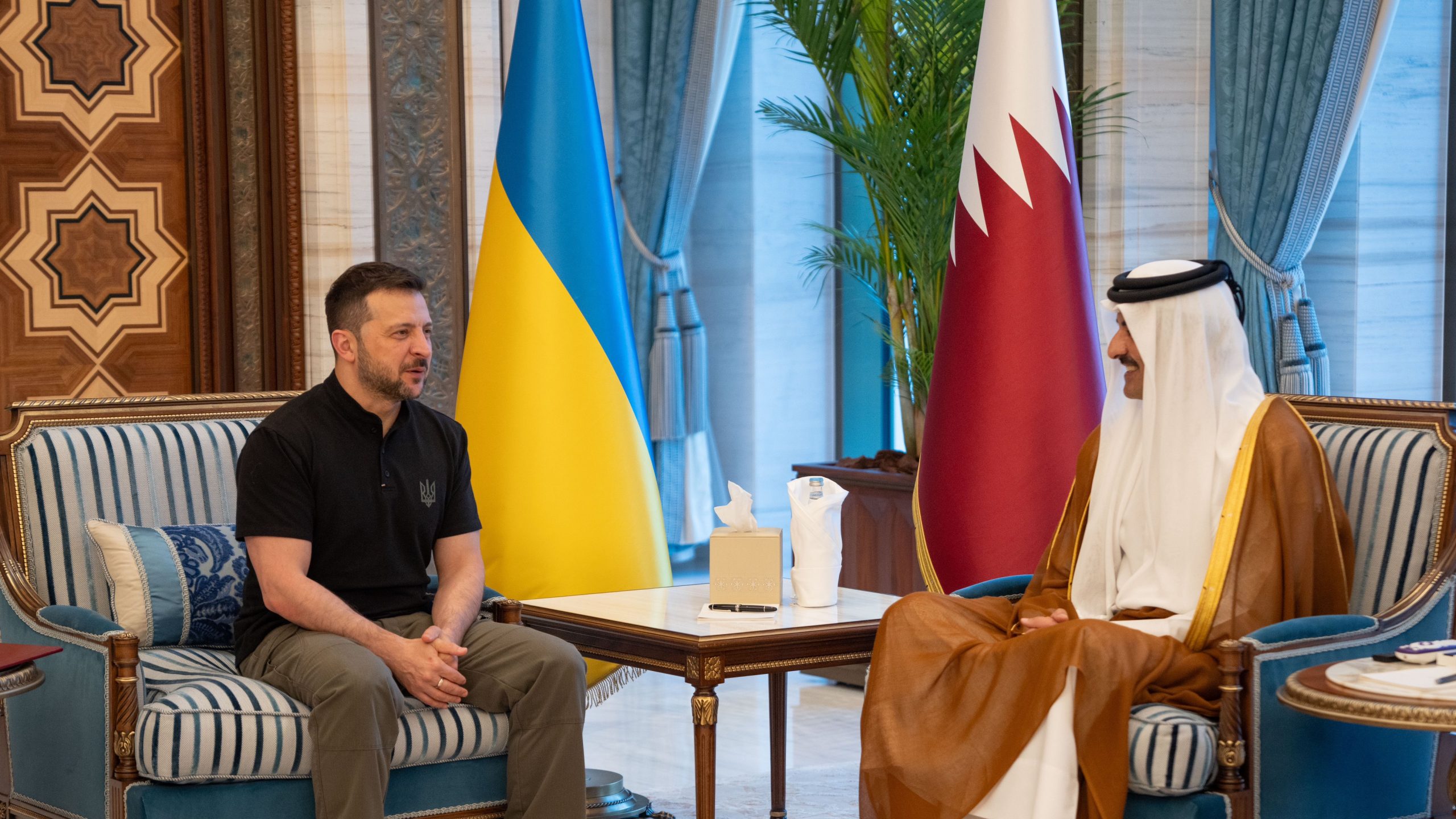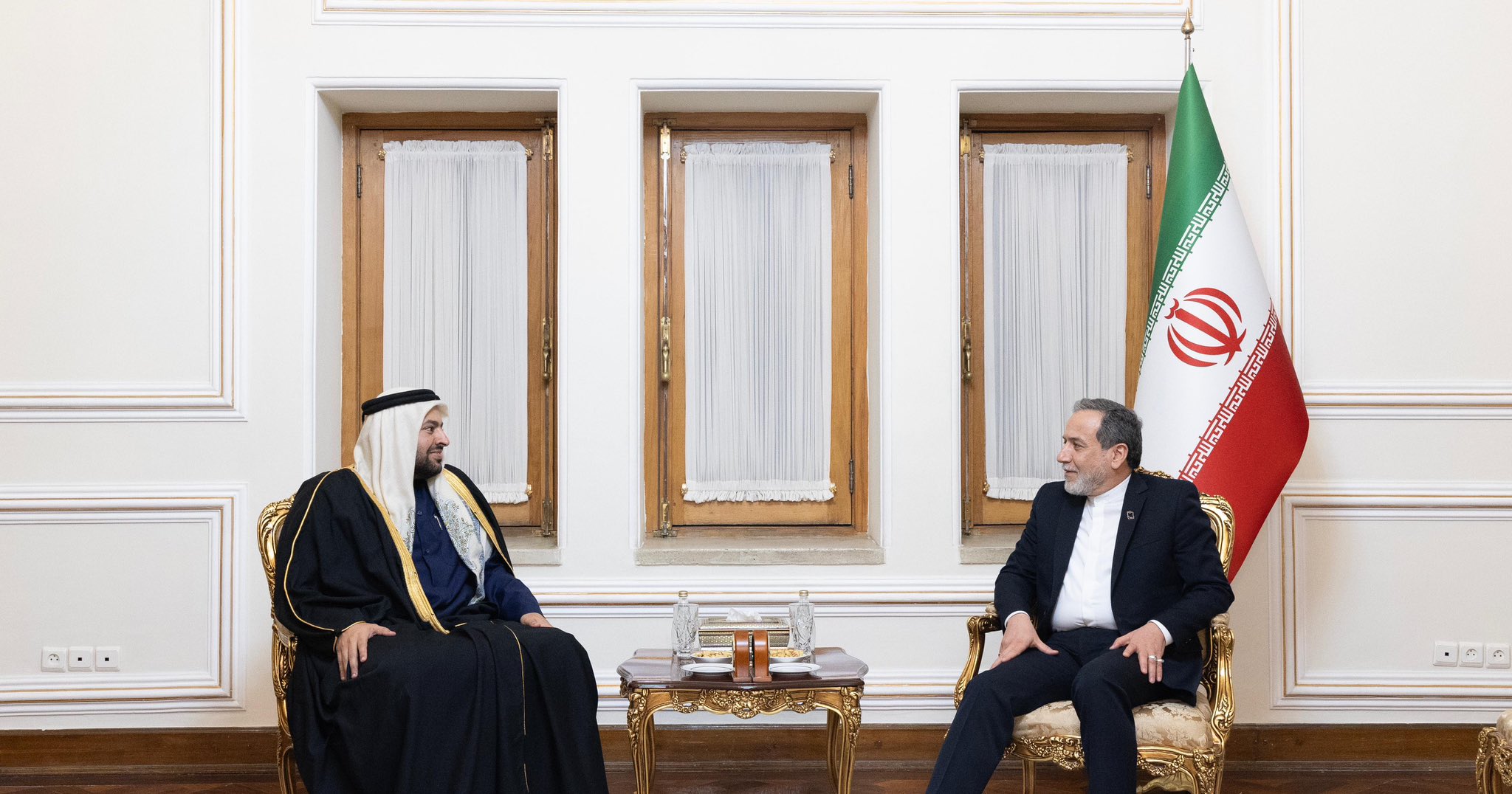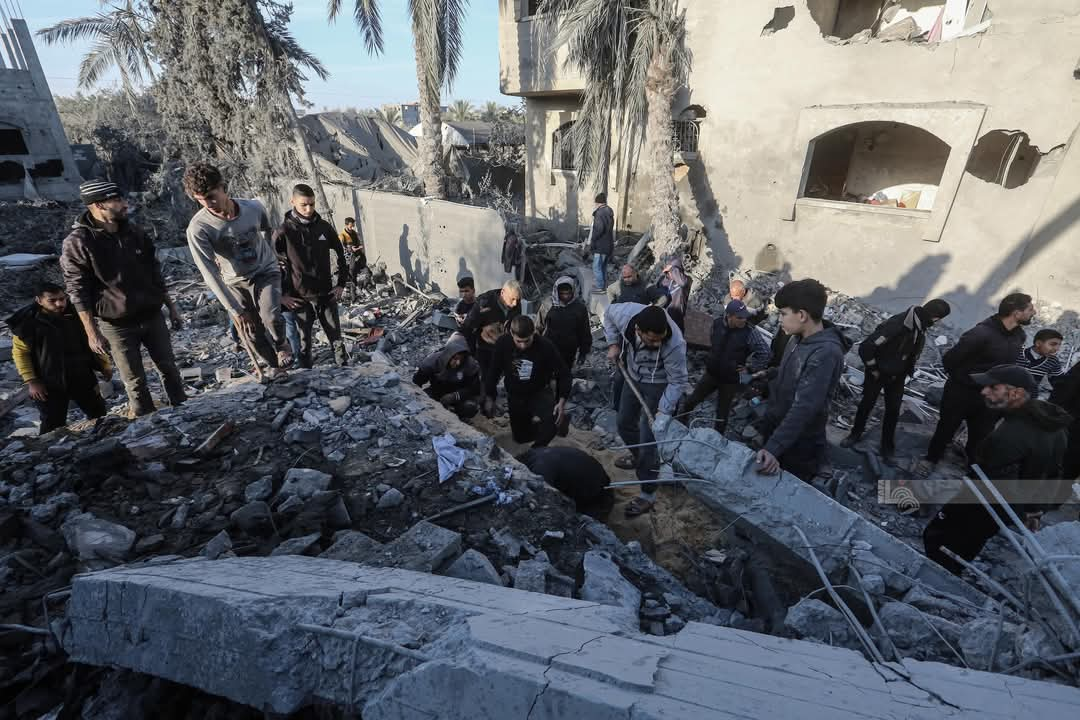The agreement also stipulates the formation of a national consensus government that would work on the unity of the West Bank, Jerusalem and Gaza and that would also pave the way for general elections.
Fourteen Palestinian factions, including rivals Fatah and Hamas, have signed the “unity declaration” in Beijing, agreeing to resolve their division and jointly govern Gaza under an “interim national reconciliation government” following the end of the Israeli war.
The signing of the China-brokered declaration took place on Tuesday under the presence of China’s Foreign Minister Wang Yi during the closing ceremony the reconciliation dialogue in the Chinese capital, held between July 21-23.
Envoys from Qatar, Egypt, Algeria, Saudi Arabia, Jordan, Syria, Lebanon, Russia and Turkiye attended the closing ceremony on Tuesday, China’s foreign ministry confirmed.
In a statement, China’s foreign ministry listed the key consensus from the declaration, including “the affirmation of the Palestine Liberation Organization (PLO) as the sole legitimate representative of all Palestinian people.”
“The biggest highlight is the agreement on establishing an interim government of national reconciliation focusing on the post-conflict reconstruction of Gaza,” Wang Yi said, as cited by the Chinese foreign ministry.
The agreement also stipulates the formation of a national consensus government that would work on the unity of the West Bank, Jerusalem and Gaza that would also pave the way for general elections.
Senior Hamas official, Musa Abu Marzuk, and Fatah envoy, Mahmud Al-Aloul, were among the 14 representatives at the discussions.
“These are historic moments, and we ask God to help us implement what we signed, and not for it to be a model of what we signed in the past. We are in a historical moment recorded by the struggle of our people, whom we salute,” Abu Marzuk said during the signing.
Fatah and Hamas were locked in a bitter war from 2006 to 2007. Hamas controls the Gaza Strip while Fatah holds the Palestinian Authority (PA) government with partial control of the West Bank.
Past reconciliation efforts
Algeria had gathered the Palestinian factions in October 2022 in previous attempt to resolve the long division between the different sides.
The meeting resulted in the Algeria Declaration, which included provisions on the development of the PLO structure while forming its national council.
Egypt, a current mediator between Israel and Hamas, hosted a separate meeting in the Egyptian city of El-Alamein in July last year after numerous efforts to broker an agreement between both sides.
Palestine’s President Mahmoud Abbas chaired the talks and met with the leader of Hamas, Ismail Haniyeh, on the sidelines of the meeting in Egypt. Similarly, the meeting resulted in the establishment of a “reconciliation committee.”
Qatar, a central mediator between Israel and Hamas, had also attempted to mediate between Fatah and Hamas in October 2006.
In 2012, Qatar brokered the Fatah–Hamas Doha Agreement, though internal disputes between the two parties have remained.
Then, in 2016, Qatar hosted dialogue between Fatah and Hamas in an effort to discuss the implementation of a 2014 agreement that had stipulated the formation of a Palestinian unity government to oversee legislative and presidential elections.
Commenting on the latest declaration, Mustafa Barghouti, secretary-general of the Palestinian National Initiative, told Al Jazeera that it goes “much further” than previous ones.
He noted that the formation of a unity government is particularly important as it “blocks Israeli efforts to create some sort of collaborative structure against Palestinian interests”.
The timing of the agreement is also a crucial factor, as it came nearly 10 months into the Israeli war in the Gaza Strip, where more than 39,000 Palestinians have been killed.
The declaration angered Israel, given its opposition to Hamas playing any role in Gaza. In a post on X, Israel’s Minister of Foreign Affairs Israel Katz maintained his rejection of any Palestinian control over Gaza.
“Instead of rejecting terrorism, Mahmoud Abbas embraces the murderers and rapists of Hamas, revealing his true face,” Katz claimed. “In reality, this won’t happen because Hamas’s rule will be crushed, and Abbas will be watching Gaza from afar. Israel’s security will remain solely in Israel’s hands.”

